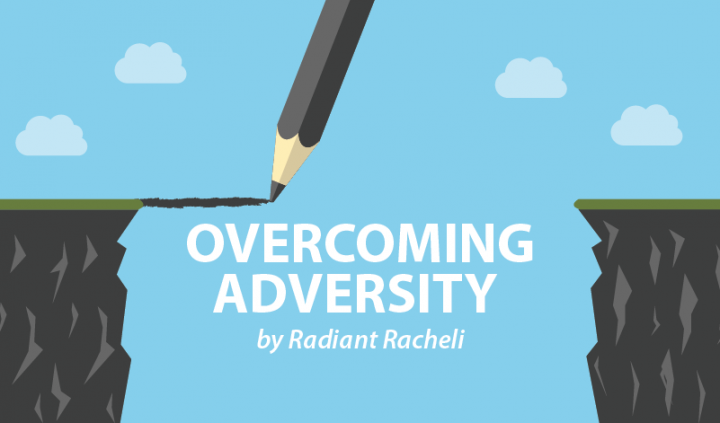Early this morning, at 4 a.m. to be exact, I was driving to a meeting for work. Instead of my usual jam session in the car, I decided to listen to a podcast. The first podcast that caught my eye was on the science of happiness — one of my favorite topics. I did a crash course on this topic and, well, actually lived it during my cancer diagnosis. The route of being mindful and dissecting the ways to feel happy while still knowing you won’t always be happy really appeals to me.
As I was listening to the podcast, one of the doctors mentioned a story about a breast cancer survivor and how she grew from her journey. She referenced the term “post-traumatic growth” (PTG), which is a positive change experienced as a result of a struggle with a major life crisis or a traumatic event. I’d never heard this specific term before. I always preach the definition, but it’s pretty cool to know that it’s an actual psychological term.
I’ve spoken plenty about post-traumatic stress disorder (PTSD) in cancer survivors and still believe that I experience it almost daily, but what I’ve not yet touched on is the real growth that I experience as well. This term had me thinking a lot today, and I just couldn’t wait to write my column on the topic!
Back in 2016, around the time that I finished treatment, I made a video of the things that I love about cancer. In it, I listed all the things that I am grateful for, from the time since my traumatic experience with lymphoma.
I do my best to believe that in almost every negative situation, we can find good. With cancer, growth is one of them. With any trauma, there is always some growth to be experienced — if you truly believe it can happen. I am a firm believer that we can create these outcomes and this growth with the right outlook and practices. I know a good amount of trauma survivors have a hard time seeing the growth, and it prompts me to wonder, is it just that people are more resilient, or is this kind of thing taught to us? Nurture versus nature is a blurred line on this topic. I like to believe that we all have it in us, and with the right practice and true belief, we can all grow from these negative experiences.
According to the Journal of Traumatic Stress, some signs that you experience PTG include, but aren’t limited to:
- Appreciation of life
- Spiritual change
- New possibilities in life
- Relationships with others
- Relating to others
- Personal strength
This growth does not occur as a direct result of trauma. Rather, it is the individual’s struggle with the new reality in the aftermath of trauma that is crucial in determining the extent to which post-traumatic growth occurs. I believe that we can simultaneously have PTSD and PTG while we navigate our new normal and post-cancer survivorship.
I really dislike the longterm symptoms and the negative psychological impact I experience. But while I know I can’t control those aspects of my experience, I can willingly embrace my growth: my new appreciation for life, new possibilities, new relationships, and ultimately, my strength. Not just my strength to overcome cancer and “beat it,” as people like to say, but my strength to acknowledge the bad and learn from the challenges.
Do you experience PTG? Let me know in the comments below how it shows up for you in your daily life!
***
Note: Lymphoma News Today is strictly a news and information website about the disease. It does not provide medical advice, diagnosis, or treatment. This content is not intended to be a substitute for professional medical advice, diagnosis, or treatment. Always seek the advice of your physician or other qualified health provider with any questions you may have regarding a medical condition. Never disregard professional medical advice or delay in seeking it because of something you have read on this website. The opinions expressed in this column are not those of Lymphoma News Today, or its parent company, BioNews Services, and are intended to spark discussion about issues pertaining to lymphoma.



